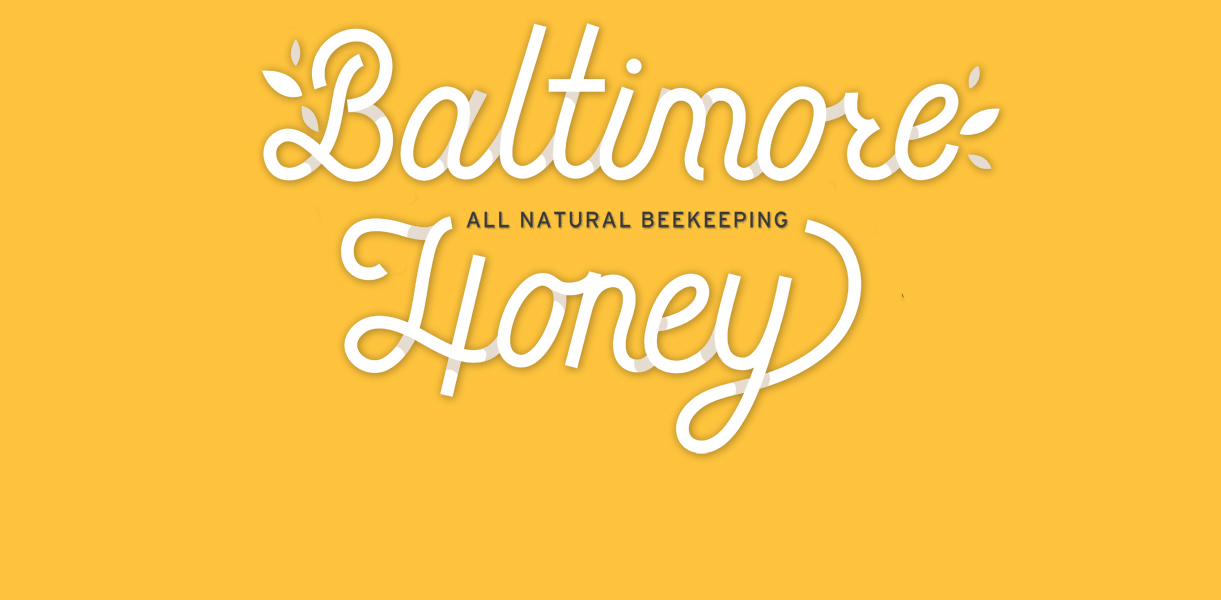queenbee@baltimorehoney.org

HOW WE KEEP
OUR MANAGEMENT PRACTICES SUPPORT HEALTHY HONEYBEES, COLONIES, AND COMMUNITIES.
We never smoke honeybees or feed sugar water.
We have clean, chloride-free and fluoride-free water on each colony 365 days of the year.
We never use chemicals nor antibiotics in, around or near a colony.
We never artificially feed honeybees.
We plant annuals, perennials, shrubs, and trees that are honeybee-friendly
plants by providing nectar, pollen and/or resin.
We leave more than 100 pounds of honey in each hive for honeybees to feed on during the winter.
Our apiaries and hives are always located in sunny locations, with the entrance oriented towards the southeast.
We rotate more than 30% of the comb out of hive each year to minimize environmental residue build-up in wax.
All colonies are raised on their own natural wax combs attached to Thomas Hybrid
Hive (TH2) bars that are without frames and without plastic/wax preformed foundation.
We dust, spray, and water with propolis as needed, to reduce
hive pathogens, pests, and other problems that the colony may encounter.
We manage the honeybees when it is best for honeybees.
We educate and inform hive stewards of all-natural methods and practices.
We raise local honeybees and local, open-mated queens in
various locations to assist with the genetic diversity of drones.
We place colonies into Community Supported Apiaries to maximize
local honeybee pollination coverage for local food security.
WORKSHOPS
Past Workshops
BALTIMORE HIVE HOSTING WORKSHOP: SIGN UP!
BECOME A HONEYBEE STEWARD THIS SPRING
Sign up for the all natural methods and practices of honeybee stewardship workshop.
Learn about the equipment and the hive, honeybee colony dynamics, integrated pest management,
all natural keeping methods, and how to enhance the honeybee environment in your backyard.
RODALE INSTITUTE WORKSHOP: SIGN UP!
The Honeybee Conservancy training at Rodale Institute consists of a 2-day class
that teaches natural and sustainable practices for honeybee stewardship.
Participants will learn about the current issues facing honeybees and available sustainable solutions and why they should first consider the well-being of the honeybee when engaging in beekeeping practices. The instructor will take you through a step by step process of understanding the life and work ethic of the most amazing human food producer: the honeybee.
SAVE THE BEES
TEN ACTIONS YOU CAN TAKE TO HELP YOUR LOCAL HONEYBEES:
1. Plant nectar and pollen-rich plants, especially those with blooming
periods from February through April and from June through October.
2. Omit the use of chemicals outdoors: herbicides, fungicides, insecticides,
pesticides, winterizers, and non-organic fertilizers, as well as organic
products containing active and/or inert ingredients that harm honeybees.
3. Plant for honeybees! White Dutch clover and dandelions are honeybees
early and late seasonal food sources for nectar and pollen.
4. Encourage neighbors to join Baltimore Honey’s effort by
becoming a Community Supported Apiary (CSA) Member.
5. Support hive stewards that rear local honeybees and queens
that are open-mated to increase genetic diversity.
6. Support hive stewards by purchasing local honey and
other products from the hive: wax, propolis, etc.
7. Contact your local city council, mayor, senator, and congressperson
to voice your support for local honeybees and hive stewards.
8. When purchasing food, purchase local. Buy from local hive stewards
who have a similar moral stand on honeybees welfare.
9. Install bat houses to help reduce mosquitoes, moths, and beetles in the hive .
10. Attend a honeybee workshop to learn more.